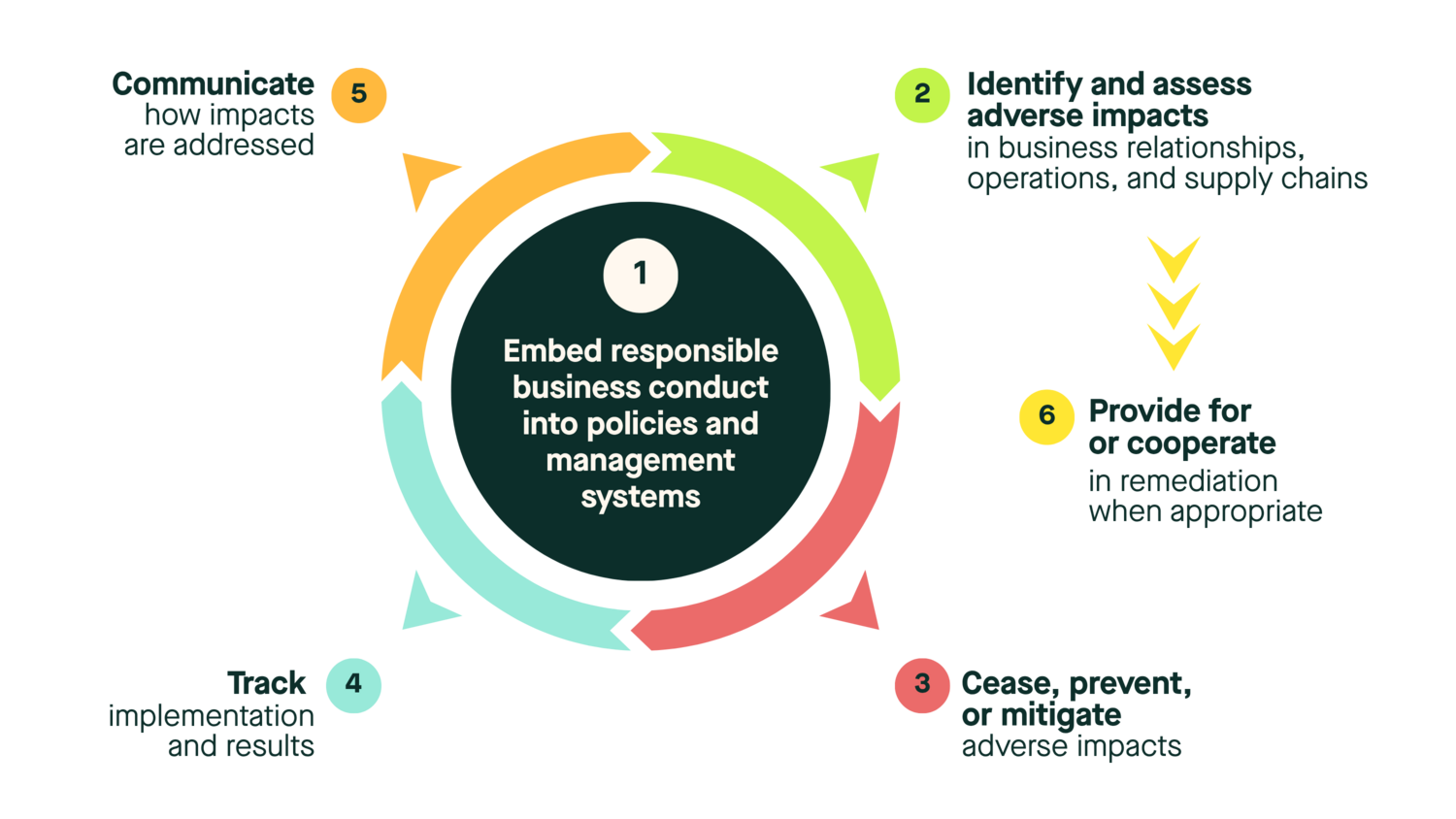Respecting Indigenous Peoples’ rights through effective due diligence
6 agosto 2025
How the Accountability Framework helps companies put human rights commitments into practice
Worldwide, production and expansion of agricultural and forestry commodities continue to pose serious threats to the rights of Indigenous Peoples and local communities (IP and LC). These include displacement from their lands, disruption of cultures and governance systems, and harm to livelihoods and well-being.
Companies have a responsibility to respect Indigenous Peoples’ rights
All companies that produce or source agricultural or forestry commodities have a responsibility to respect the rights of Indigenous Peoples and local communities. These include rights to land, culture, self-determination, self-governance, a healthy environment, non-discrimination, and full and effective participation in the decisions that affect them, including through the process of free, prior, and informed consent (FPIC). Grounded in international human rights law, these rights must be upheld even when national laws fall short or are not effectively implemented or enforced.
Respecting these rights is a legal and ethical responsibility; it also helps companies avoid material risks, such as financial liabilities, reputational harm, and operational disruptions.
Rights violations are also closely linked to deforestation and land conversion, while securing IP and LC rights has been shown to help protect forests and other natural ecosystems. In this way, respecting IP and LC rights is also essential to achieving broader sustainability goals.
Using the Accountability Framework for human rights due diligence
To respect the rights of IP and LC in practice, companies should follow the six elements of the internationally-recognised human rights due diligence process to identify and address risks and impacts associated with their operations and supply chains.

The Accountability Framework provides practical and actionable guidance to support companies in implementing this process. The Framework is aligned with international norms, such as UN Guiding Principles on Business and Human Rights and the OECD Guidelines. It also supports companies in taking an integrated approach to environmental and human rights due diligence.
All companies should have clear policies, systems, and accountability measures
Regardless of their positions in the supply chain, all companies should have clear commitments, policies, and systems to uphold IP and LC rights. These are foundational to effective due diligence. Publicly accessible policies should include a commitment to respect these rights, including to secure FPIC prior to any activities that might impinge on IP and LC rights. Key elements for such commitments are spelled out in the Accountability Framework’s Core Principles 2 and 3.
After setting commitments, companies should embed respect for human rights into company policies and management systems. This includes governance structures with senior leadership accountability, involvement of all relevant company functions, and alignment of employee incentives with human rights outcomes.
Companies should also engage IP, LC, and other rightsholders in a structured and ongoing way to build trust and to be proactive in respecting IP and LC rights. This includes establishing an effective grievance mechanism and response strategy to identify and address harms in a timely manner. When harms to IP or LC rights occur, all companies have the responsibility to provide or cooperate in providing remedy. Action must be taken regardless of whether the company caused or contributed to the harms, or is linked to the harms through its supply chain or business relationships. Remedy must be fair, just, and mutually-agreed with affected rightsholders, following an FPIC process.
More broadly, all companies should have mechanisms to monitor performance, report transparently, and enable accountability.
In many cases, effective strategies for respecting IP and LC rights require collaborative action at the landscape, jurisdictional, or sectoral levels. Examples of such collaboration could include advocating for recognition of Indigenous Peoples’ land and resource tenure rights, and supporting land use planning processes in commodity sourcing regions where rightsholders are present.
Actions should be tailored to the supply chain position the company holds
Actions to identify, cease, prevent, mitigate, and address impacts to IP and LC rights may differ depending on a company’s position in the supply chain.
Companies that own, manage, or control commodity production or processing should act early and proactively, particularly prior to land acquisition or site development, when risk of severe rights violations is often highest. It is essential for companies to ensure legitimate land tenure, conduct meaningful FPIC, and engage rightsholders in participatory assessment processes that reflect their development priorities. A human rights impact assessment, grounded in international human rights standards, offers an umbrella approach for assessing and addressing project impacts in a systematic manner.
As commodity buyers are typically more removed from sites of commodity production, their due diligence process focuses more on supply chain management. This includes:
- supply chain mapping and traceability to understand origins of products sourced
- assessment of risk, looking for red flags such as weak governance, contexts where Indigenous Peoples’ lands are not legally recognised, past or current conflict zones, and situations involving groups that wish to remain isolated
- procurement processes that are aligned with company policies
- supplier screening and support, and mechanisms for addressing non-compliance
Get started with the Accountability Framework
The Accountability Framework Operational Guidance on Respecting the Rights of Indigenous Peoples and Local Communities offers a comprehensive resource to support companies in taking meaningful action to uphold IP and LC rights.
To benchmark your company’s progress against the Accountability Framework, use the free AFi Self-assessment Tool.
